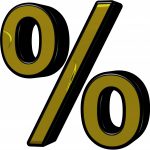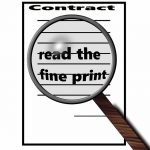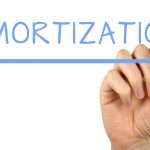What is a Mortgage Loan (Canada)?
Mortgage Simple Definition
In it’s simplest terms, a mortgage is just a loan. Usually it’s the biggest loan you’ll ever take, but, it’s still just a loan.
But, there is a little more to it. It has a collateral attached to it. A collateral is something that is used as security in return for something else. In the case of a mortgage, your home is used as security against your loan to buy it.
So let’s see an example. You want to buy a home, whether it’s used and from another homeowner or it’s new from a builder, you need to pay a certain amount for it. Let’s say it’s $550,000. You have $80,000 saved up. Obviously, it’s not enough to buy your home. So, you need an extra $470,000 ($550,000 minus $80,000).
In most cases, you go to a lender such as a bank or credit union and ask for a loan (in this case $470,000) to buy this home. The $470,000 is your mortgage amount. This type of loan where you want to buy a home is called a mortgage loan. So, that’s all it is: It’s a loan when a home is being purchased.
Below is a video from Realtor.com describing some mortgage basics.
Time: 2 min 21 sec
What are some Characteristics of a Mortgage Loan?
- Your home is used as security against the loan
- You can pay off your loan over a long period of time, let’s say 25 years
- There is an interest rate associated with your loan
- The lender can only compound interest on the loan twice a year for a fixed rate mortgage, monthly for a variable rate mortgage
- You cannot pay off the loan before the contract (called the term period) ends, at least, not without a big penalty, or unless you get an open mortgage
- You may not be able to increase the size of the loan without a penalty
- You may not be able to move your loan to a new home in case you sell your current home and want to buy a new one
- You may need a guarantor
- You may need your spouse to sign
- You may be required to buy insurance
- And there are other characteristics and notes to be aware of when shopping for a mortgage
What is the Mortgage Rate?

The mortgage rate is the interest rate you pay on your mortgage loan.
According to Canadian law, fixed rate mortgages can be compounded semi-annually, at the most. The more frequent something is compounded, the more you make, so lenders compound at the maximum, which is semi-annually.
The interest you see for mortgages is actually a semi-annual rate for fixed rate mortgages. When you see a posted mortgage rate of 4%, for example, it means you’re actually being charged 2% for half a year (this is the semi-annual part), then 2% for the second part of the year. But, this second 2% is charged on the balance which now has 2% of interest added to it from the first 6 months of interest charge. So, at the end of a year, you effectively get charged more than 4% because of the compounding.
Now, you may think that in order to make things more transparent, the APR or annual percentage rate that mortgage lenders quote on their websites takes this compounding into effect.
To me, the name suggests that. But, after reading the fine print from 3 lender websites (2 “Big Banks” and a credit union), that’s not the case, unfortunately, even though it could be easily displayed for consumers.
The APR rate only takes into account extra costs that the lender charges in order to get your mortgage. This extra cost may include processing fees, mortgage insurance, or other costs that the lender may charge. When there are no extra costs, then the APR will equal the mortgage interest rate. When there are extra costs, the APR will be higher than the interest rate.
When interest rates are low and / or your mortgage amount is low, this compounding doesn’t have a big effect. When rates go higher, people will feel the effect on their pocket books, much more.
Variable rate mortgages can be compounded monthly.
Mortgage Term
The amortization period and mortgage term can often confuse people. The reason for this is because in most other contracts that we deal with in our daily lives, your amortization and contract period are equal. Take a phone contract for example: You may be in a 2-year contract to pay off your phone. The term is 2 years and the “amortization” (the time to pay off your phone) is also 2 years. They are equal.

With mortgages, they are almost always different. The mortgage term is the length of the contract. The amortization period is time over which your mortgage is calculated in order to pay off your mortgage. Most of the time, your term is shorter than your amortization period.
Let’s look at another example: With contracts like your internet service, your term and amortization period are usually equal. If you sign up for a 1 year contract, often the payment is the same for the whole period. (I know, sometimes you might pay a lower rate for 3 months and then the rate increases for the remainder of the term.) When the 1 year term ends, you can negotiate again with your internet provider for a new plan to continue your service. But, by the end of your contract, you have no more obligations to the internet provider. You’ve paid what is required to your internet provider. That’s not the case with a mortgage.
With a mortgage, at the end of your term, if you still owe your lender money, you are still obligated to pay off your lender.
So what happens if you were to borrow $200,000 and amortize over 1 year like an internet contract (at 3.5%), you would have to pay almost $17,000 per month! Most people can’t pay that. So that lenders can actually get customers and earn money, they may calculate your monthly payment over 25 years, for example. You can discuss this period when getting your mortgage. Over 25 years, your monthly payment becomes about $1,000 per month. Now that’s more manageable and now the lender can get some customers.
The term of your contract might only be for 5 years. Which means you are guaranteed the interest rate they lent you for that period and can renegotiate when the term ends. When the term ends, usually you still owe money to the lender because your monthly payment was calculated over a 25 year period, but, your term (basically the contract details) may have been guaranteed for only 5 years.
Basically, the term of your mortgage is the length of time that the contract details is guaranteed. The amortization period is the time over which your mortgage payments are calculated.
What is Amortization?

Amortization is the period over which your mortage is calcluated to be paid off. This is different from the term of your of your mortgage, which will generally be shorter than the amortization. Most of the time, mortgages are amortized over 25 years, but, it can be shorter or longer. The longer you amortize your mortgage, the more interest you pay. Having a longer amortization period helps keep your monthly payments lower, even though you are paying more interest over this time period.
In Canada, if you miss one payment even by a day, you are technically in default of your mortgage and the lender can take swift action against you. So, one really good reason to keep lower payments even though you pay more interest is to ensure your payments are within your means. (Or you can buy a cheaper home, but, I won’t get into that :))
If you opt for a long amortization, then you should also find a mortgage that allows you extra payments. This way, if you have extra cash to pay each month, you may be able to do so which will help pay off your mortgage faster and therefore reduce your interest paid.
This is a good video by Howcast on amortization in case you want to listen to an explanation.
Time: 2 min
Types of Mortgages
Fixed Rate Mortgages
With fixed rate mortgages, the interest you get on your mortgage is locked-in for the term of your mortgage. The benefits of this include:
- Knowing the interest rate you will be charged
- Knowing the payment amounts
- Being able to exactly calculate how much goes to interest and how much goes to principal
Variable Rate Mortgage
A variable rate mortgage has an interest rate that can vary periodically, although it doesn’t have to. Why? Because, generally, it’s based on the lender’s prime rate plus some certain percentage. And if the lender’s prime rate doesn’t change, then your rate won’t change either.
Open Mortgages
An open mortgage allows you to pay off your mortgage before the term ends. Yes, that means if you don’t have an open mortgage and you win the lottery, you won’t be able to pay off your mortgage immediately. You’ll have to wait until the mortgage is up for renewal and convert to one that allows full payment.
Closed Mortgage
This kind of mortgage does not allow you to pay off your mortgage before the term ends. However, if you really need to, and you don’t have this kind of mortgage, you can pay it off immediately, but, you’ll pay a penalty. Sort of like breaking a cellphone contract, but, on a way larger scale.
Why take a closed mortgage if the lender also offers an open mortgage? Because the closed mortgage interest rate will be lower. So, if you don’t reasonably forsee yourself paying off your mortgage early, then a closed mortgage is a good option.
Here is a good video about types of mortgages from Genworth, a mortgage insurer.
Time: 2 min 39 sec
Mortgage Security
By definition, a mortgage is a loan where your property is used as collateral. Mortgage security refers to the way your property is registered with the land registry office. This registration is called a “charge”. There are two types of charges that a lender can use when registering your property. Unfortunately, the terms overlap with existing terms.
Conventional Charge (often referred to as a Conventional Mortgage)
In this classification, the mortgage is registered with the actual amount of your mortgage loan. If you borrowed $250,000, then the charge on the registration will also be $250,000.
When people use the term conventional mortgage, this can get confusing since conventional mortgage is more commonly known as a mortgage where the buyer puts down a deposit of 20% or more on the value of the property.
Collateral Charge (often referred to as a Collateral Mortgage)
In this classification, the mortgage is registered with the actual amount of your loan or higher. By allowing your lender to register a higher amount, you may be able to borrow extra funds with additional loans using your home as collateral.
It’s a bit confusing when people refer to this as a collateral mortgage since a mortgage, by definition, uses collateral, which is your home.
Currently, TD Canada Trust and Tangerine Bank offer collateral charge mortgages only.
Financing Terms
Down Payment
If you buy a home for $400,000, you may need to borrow $400,000 from the lender to buy the home if you have no savings. In this case, your down payment will be $0 dollars. If you have saved $50,000 that you can use towards the purchase of your home, then your down payment will be $50,000 and you will only need to borrow $350,000 from the lender.
Payment Frequency
Monthly Payment as the name suggests are payments made every month. This results in 12 payments per year.
Semi-Monthly Payments are two payments per month, one at the beginning and another in the middle. This results in 24 payments per year.
Bi-Weekly Payments are payments made every second week. This results in 26 payments per year.
Weekly Payments are payments made every week. This results in 52 payments per year.
High Ratio Mortgage
This isn’t really a type of mortgage, although you may see this term a lot. When you put a down payment of less than 20% of the property value, then whatever mortgage you have is considered a high ratio mortgage. So, it’s not really a type of mortgage a lender offers, it’s just a term used to describe another aspect of your mortgage.
Conventional Mortgage
Again, this isn’t really a type of mortgage offered by the lender. It describes a mortgage where the borrower makes a down payment of 20% or more on the property value of the home being purchased.
Where Can a Mortgage be Obtained?
You can get a mortgage directly from a multitude of financial lenders such as the “big 5 banks”:
- TD Canada Trust
- CIBC
- Bank of Montreal (BMO)
- Royal Bank (RBC)
- Bank of Nova Scotia or Scotiabank (BNS)
You can also use smaller banks and credit unions such as:
- National Bank
- Duca Financial
- Desjardins
- Meridian Credit Union
And there are numerous specialized financing companies that specialize in lending.
You can also use the services of a mortgage broker. This is my recommended way because it saves you time and potential stress from figuring out what you can take, what you should take, and understanding all the conditions and features on mortgages. This is assuming you find a good mortgage broker.
Or, as I’ve read in a few news articles, you can use the “bank of mom and dad!”
With any of the above choices, just contact them directly and tell them you’re shopping for a mortgage and they should guide you the entire way, before and after.
I’ve used a mortgage broker twice and I only heard from her up until I got my mortgage. After that, didn’t hear back from her whatsoever. That’s fine. But, I think the mortgage brokers with superior customer service should contact you again even after you’ve gotten your mortgage.
What is the Maximum Mortgage Loan I Can Get?
In case you’re interested in the maximum amount a lender can provide you, you have to calculate two things:
Gross Debt Service Ratio
The key ratio here is 32% and the numerator is your monthly housing costs and the denominator is your gross monthly income. Your housing costs include the following:
- Mortgage principal
- Interest
- Taxes
- Heating costs
- 50% of your monthly condo fees (for condo purchases)
Total Debt Service Ratio
The key ratio here is 40% and the numerator is your entire monthly debt load and the denominator is also your gross monthly income. So, in this calculation the numerator is the same as the Gross Debt Service Ratio, but, you should also include other debt you may have such as credit cards and car loans, for example.
It’s possible for your ratio(s) to be higher if your credit score is really good. The maximum that a lender is allowed to give a mortgage loan for is actually 39% and 44%. The above ratios are industry guidelines.
Here is a video from Verico Financial Group entitled: What can you afford?
Length: 4 min
Mortgage Insurance
When you only put 20% or less down payment on your home (high ratio mortgage), the government requires you get insurance on your mortgage.
According to the Canada Mortgage and Housing Corporation (CMHC):
The minimum down payment requirement for mortgage loan insurance depends on the purchase price of the home. For a purchase price of $500,000 or less, the minimum down payment is 5%. When the purchase price is above $500,000, the minimum down payment is 5% for the first $500,000 and 10% for the remaining portion. Mortgage loan insurance is available only for properties with a purchase price or as-improved/renovated value below $1,000,000.
The three main insurers are:
Canada Mortgage and Housing Corporation (CMHC)
Genworth Financial
Canada Guaranty
Mortgage Closing Costs
- Property valuation fees
- Home inspection fees
- Property surveys
- Land transfer tax
- Legal fees
- GST/HST (generally only for new homes)
- Title insurance
- High ratio insurance (only if you’re taking a high ratio mortgage)
- Interest adjustments
- Utility adjustments
- Prepaid property tax
- Home insurance
Beware of closing costs for condos from shady developers. See video below from CBC.
Time: 2 min 30 sec
I hope you enjoyed my guide. Am I missing some information in this guide? Please write a comment below or send me a note.
Well Done!! I must say that the knowledge you have shared about Mortgage Insurance, finance, interest rates and open, close mortgages is remarkable. This will be beneficial for all who are going to use their property or vehicle as mortgage. Thanks for such an innovative information. Keep updating!!
Thanks! Appreciate it.